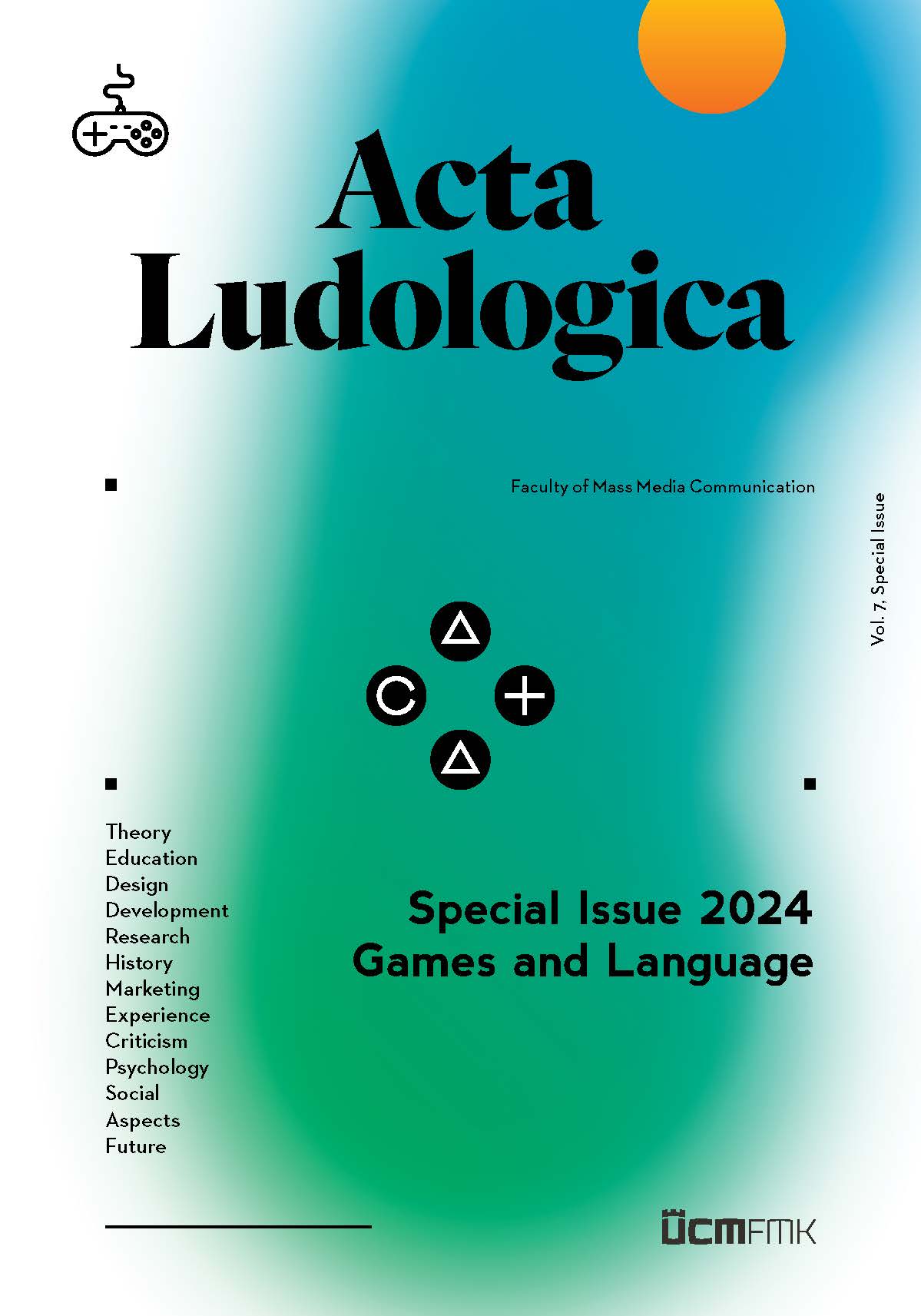Author: johnny (Page 2 of 4)
ABSTRACT: The paper discusses the criteria about how one can establish if a group is a new genre. It distinguishes between two main lines of thinking about genre in general – content and discourse. Both lines have two things to discuss. For content it is similarities and differences in mechanics, and for discourse it is commercial and social purpose of the use of new categories. The case studies then show how this can be applied to the rising auto battler class. There are 7 core mechanics in games that are similar, but every game differs in small details from others. The discourse in the social and commercial sphere has appeared over a short time period, and the adoption of the new genre by the gaming community was therefore fast. The bottom line of the text is that using rigid categories for discussions about digital games cannot focus only on rigid criteria, but also on context.
KEY WORDS: auto battler, core mechanics, digital games, game typologies, genres studies, modding.
View full articleABSTRACT: The demands of educational practice are changing alongside our dynamically changing society. It is, therefore, necessary to purposefully and systematically seek ways to motivate, teach, and develop independent thinking among learners. This theoretical study aims to identify and characterize the essential assumptions and reasons for the implementation of digital games into ethical education classes. The fundamental premise is the thematic variability of game narratives, and a fulfillment of the experience attributes through the interactivity both in terms of the direct interactivity of the learner and the medium and in the subsequent discussion as a part of value reflection. Attention is focused on the process of ethical decision-making, ethical dilemmas, and problems that can be identified in many digital games containing at least a basic narrative structure. Interactive narration includes, besides the story itself, the influence of the participant on the further direction of the storyline, allowing players to see the consequences of their individual decisions within simulated situations. The study explores a game principle – the butterfly effect – in the context of ethical decision-making in particular through the game Detroit: Become Human, as well as demonstrates its usability within ethical education classes.
KEY WORDS: butterfly effect, decision-making, Detroit: Become Human, digital games, dilemmas, ethical education, game-based learning, storytelling.
View full articleABSTRACT: Games that utilize satire have largely been unexplored despite their potential to be used as learning supplements or tools to foster conversations around difficult large-scale topics. To what game genre do these games belong, and what are the uses and benefits for learning from such games? In this exploration study, we examine six popular and culturally relevant digital games (5 directly, 1 indirectly) utilizing satire as part of their narrative and gameplay. The range of games covers topics such as global overpopulation, the use of artificial intelligence for surveillance, and the process of mass capitalist production and the manner of its consumption. Satirical digital games serve both the purposes of serious games and entertainment games, pointing to the problematic connotations of the term serious games. It is suggested that the name satirical games is used to describe digital games created for entertainment with underlying political messages and to make a statement and/or commentary on society. Satirical games have potential as powerful learning tools to help facilitate discussion around difficult topics about society’s functions and practices. Future studies should examine additional digital game titles that rely on satire in their narrative and gameplay and investigate the relationship between satire and its role in the learning goals of the games.
KEY WORDS: digital games, game-based learning, informal learning, satire, serious games.
View full articleABSTRACT: The present study does not approach digital games per se and in accordance with the, so to speak, matter-of-course habitus, i. e. within the frame of game studies discourse (regardless of the ludology-narratology debate and probably even continuing tension), but rather in a wider cultural context and that by following essentially their relations to other cultural contents and phenomena, cinema in particular. Hence the intermediality discourse is within the pursued reflection applied as, from the point of view of the author, a fruitful framework. Intermediality can be legitimately approached as such a relation between media which, as Petr Szczepanik puts it, ‘creates indivisible fusions’. If we accept this thesis and utilize it as a starting point, film – connecting image, word and sound – appears to be intermedial apriori. On the basis of this and in connection with digital games (which, by the way, can be in terms of the aforementioned understood as intermedial a priori, too), such cinematic works of art – naturally, pars pro toto – are in the centre of interest here in which the a priori intermedial character of film is in a sense amplified or rather brought to a square (film as ‘intermedium2‘) – in this case and context by evincing ties, implicit and/or explicit, to digital games.
KEY WORDS: digital games, experience, film, intermedia, intermediality.
View full articleABSTRACT: The aim of this exploratory study is to identify the main advertising tools used in-world the in the virtual world Second Life. The main categories of products and services available within the world were defined and divided: the advertising opportunities into free marketing tools, official tools and in-world marketing tools. Second Life creates a unique platform, which allows the creation of a virtual business with profits in real life. Advertising and in-world marketing offers them the option to promote virtual goods. The main marketing tools within the virtual environment are defined and elaborated with specific cases. The lack of literature related to Second Life is visible in the sources and the environment is still unexplored, therefore we used personal experience from our 11 year presence within the virtual environment and virtual business in Second Life.
KEY WORDS: advertising, in-world, marketing, marketing tools, second life, virtual business, virtual world.
View full articleABSTRACT: Easter eggs are a well-known and popular phenomenon throughout the whole of pop culture, and the interactive nature of digital games unleashes the full potential of their implementation, as well as integrating them into the gamers’ experience. The study focuses on Easter eggs in digital games from a structural point of view to understand them on the fundamental text level. With this aim, the analysis consists of applying Genette’s textual transcendence to a specific digital game, The Talos Principle. The paper represents part of the introductory theoretical framework to the following research on comprehensive Easter eggs’ classification.
KEY WORDS: digital games, Easter eggs, textual transcendence, The Talos Principle, transtextuality.
View full article
